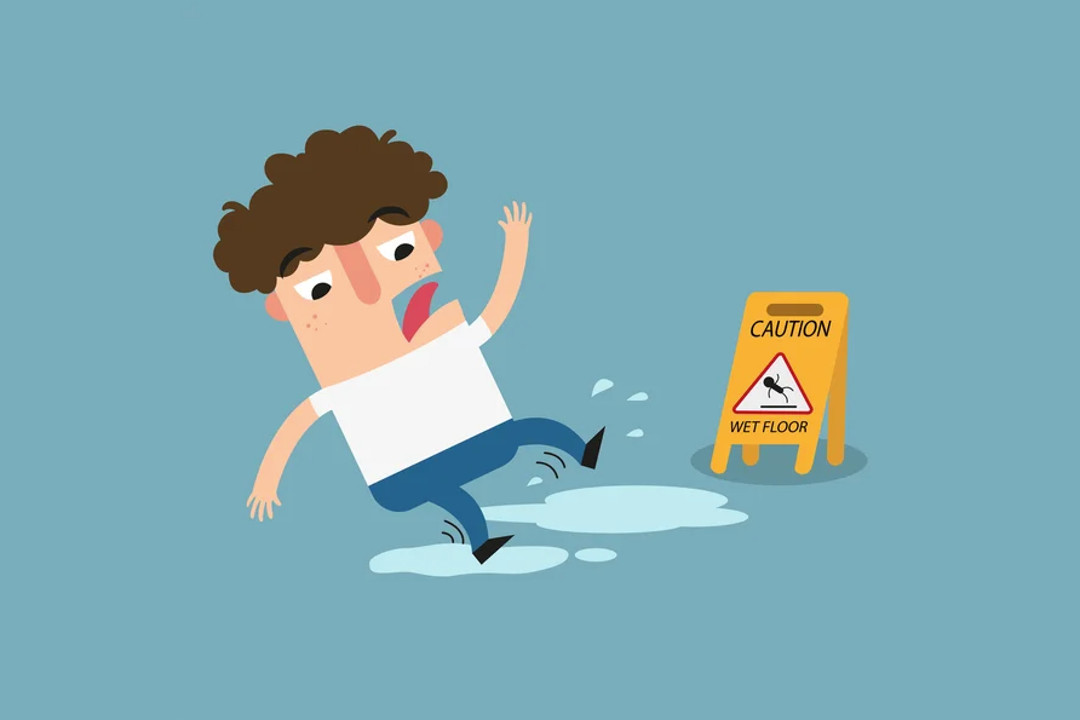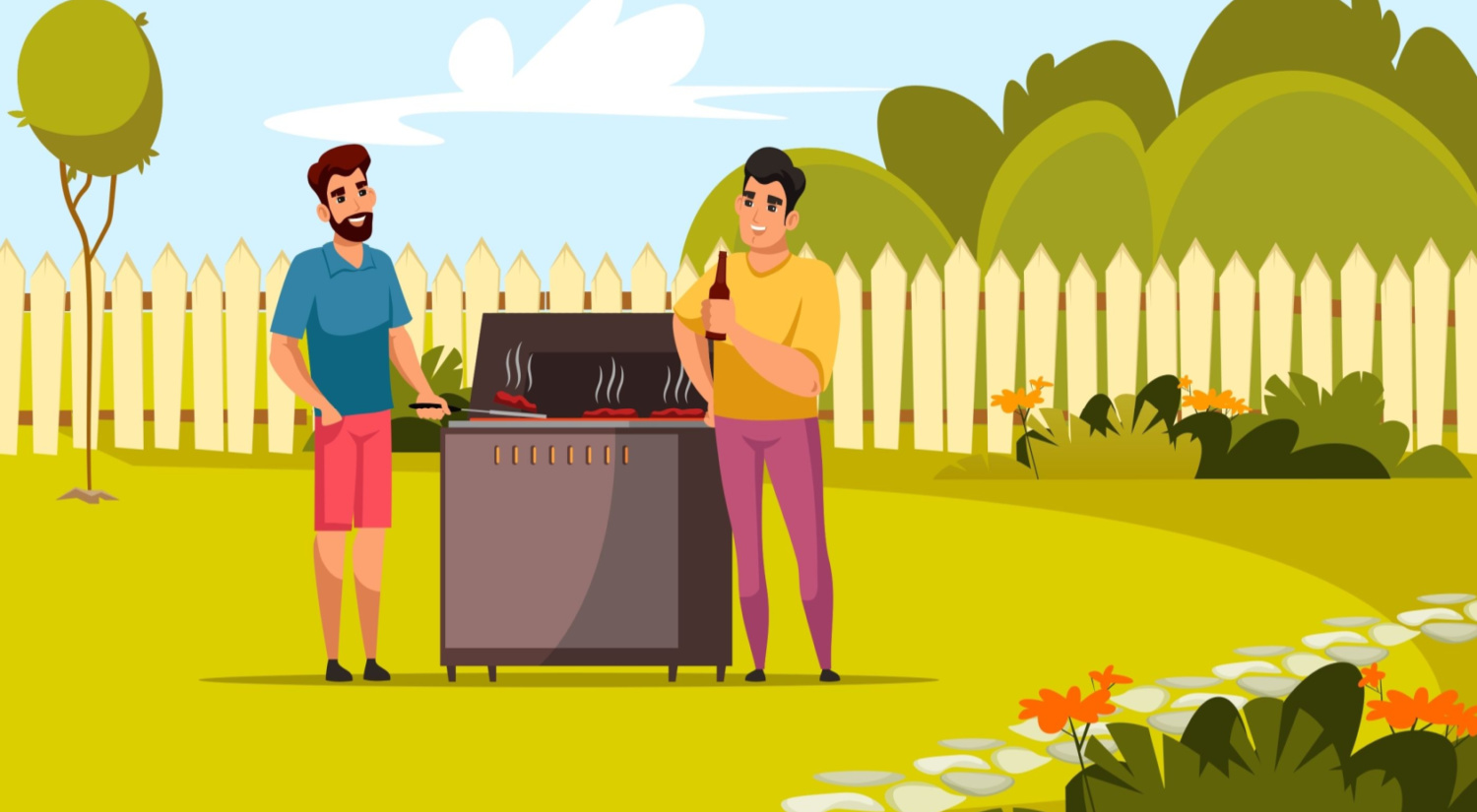
New Jersey Premises Liability: Who is Responsible
In our previous post, we explored New Jersey law concerning public sidewalks. Today’s post aims to provide an overview of New Jersey law and injuries sustained on private premises.
Common Law: Three Types of Visitors
Traditionally at common law, there are three categories of relationships between a landowner and a visitor. Each one requires something different from the landowner. Whether a fall occurred within a store, on the grounds of a business, or at a friend or acquaintance’s home, the first step will be to determine whether the premises owner owed the injured individual a duty of care.
The Invitee (Duty of Reasonable Care)

The first type of visitor is known as an invitee. As defined by the New Jersey Supreme Court, an invitee is an individual who enters the property “by invitation, express or implied, generally for some business purpose of the owner.” Rowe v. Mazel Thirty, LLC, 209 N.J. 35, 43 (2011). Invitees are typically shoppers at the landowner’s business. They benefit the landowner financially, and the property is designed to attract them.
Significantly, it is not required that the business visitor make a purchase or even intend to make a purchase. All that is needed is a prospective advantage to the landowner. See e.g. Lewin v. Ohrbach’s, Inc., 14 N.J. Super. 193 (App. Div. 1951) (finding injured plaintiff who did not intend to make a purchase but instead accompanied her sister to the store to be an invitee.).
As a business invitee is there to confer a benefit upon a business owner, even if it is only a prospective benefit, the landowner has a heightened duty of care to keep invitees safe. The New Jersey Supreme Court has affirmed the common law duty of care to invitees as “a duty of reasonable care to guard against any dangerous conditions on his or her property that the owner either knows about or should have discovered. That standard of care encompasses the duty to conduct a reasonable inspection to discover latent dangerous conditions.” Hopkins v. Fox & Lazo Realtors, 132 N.J. 426, 434 (1993). In other words, landowners must protect invitees from dangerous conditions on their property, warn invitees of hidden defects, and regularly inspect their property to ensure the premises are free of defects and safe for the public.
The Licensee (Duty to Warn)

The second type of visitor is known as a licensee. As defined by the Rowe Court, a licensee is someone who is “permitted to come upon the property, and does so for his own purposes.” Rowe v. Mazel Thirty, LLC, 209 N.J. 35, 43 (2011). For example, a social guest, such as a visiting friend or family member, is usually considered a licensee even if the landowner expressly invited the social guest onto his property.
The New Jersey Supreme Court set forth the duty owed to a licensee in Berger v. Shapiro, where it noted that “while the social guest (gratuitous licensee) may be required to accept the premises as the host (licensor) maintains them, he is at least entitled to the same knowledge possessed by the host of dangerous conditions and should not be expected to assume the risk of such conditions in the absence of a warning. The host is not required to inspect the premises to discover defects or maintain them in a safe condition for his guest, but if he knows of any defective or dangerous condition he must exercise reasonable care to correct the condition or warn the guest of the danger.” 30 N.J. 89, 98 (1959).
Therefore, unlike the duty owed to an invitee, the landowner owes no duty to inspect the premises or make it reasonably safe for a licensee. Instead, a landowner owes a licensee the legal duty to warn him of any dangerous conditions on the property that the owner knows of and which the licensee is unlikely to notice.
The Trespasser (Refrain from acts Willfully Injurious)

A trespasser in New Jersey is someone who is “neither invited nor suffered.” Rowe v. Mazel Thirty, LLC, 209 N.J. 35, 43 (2011). Trespassers are individuals the landowner has little reason to expect. The general rule with respect to trespassers is that “a landowner owed no duty to a trespasser other than to refrain from acts willfully injurious.” Renz v. Penn Central Corp., 87 N.J. 437, 461 (1981). Additionally, landowners must warn about any “artificial conditions on the property that pose a risk of death or serious bodily harm to a trespasser.” Hopkins v. Fox & Lazo Realtors, 132 N.J. 426, 434 (1993). Therefore, landowners with dangerous artificial conditions on their property, such as a high voltage electrical transformer, are required to post warning signs of the danger.
Children Trespassers

Pursuant to the infant-trespasser doctrine, a landowner may be charged with a slightly higher duty of care in cases involving trespassing children. As noted by the Supreme Court in Vega by Muniz v. Piedilato, “[a] possessor of land is subject to liability for physical harm to children trespassing thereon caused by an artificial condition upon the land if:
- the place where the condition exists is one upon which the possessor knows or has reason to know that children are likely to trespass, and
- the condition is one of which the possessor knows or has reason to know and which he realizes or should realize will involve an unreasonable risk of death or serious bodily harm to such children, and
- the children because of their youth do not discover the condition or realize the risk involved in intermeddling with it or in coming within the area made dangerous by it, and
- the utility to the possessor of maintaining the condition and the burden of eliminating the danger are slight as compared with the risk to children involved, and
- the possessor fails to exercise reasonable care to eliminate the danger or otherwise protect the children.
[154 N.J. 496, 503].
Landowners who have created an artificial condition that they believe children may trespass upon or whose land includes something that they may expect to attract children are under a duty to provide such care as a reasonably prudent person would take to prevent injury. As an example, the presence of a swimming pool on a landowner’s lot is an artificial condition attractive to children. Therefore, a landowner is charged with a duty to protect trespassing children by erecting a fence.
New Jersey Law
In addition to the above traditional classifications, the New Jersey Supreme Court has found that instead of a landowner’s duty of care turning on the common-law designation of the party injured, the determination of “whether a person owes a duty of reasonable care toward another would turn on whether the imposition of such a duty satisfies an abiding sense of basic fairness under all of the circumstances in light of public policy.” Hopkins v. Fox & Lazo Realtors, 132 N.J. 426, 439 (1993). The factors to be considered in making this determination include, “the relationship of the parties, the nature of the attendant risk, the opportunity and ability to exercise care, and the public interest in the proposed solution.” Id.
Therefore, in cases where it is unclear as to what type of common law classification is to be applied, New Jersey courts are directed to consider various factors and apply a duty of care commensurate with public policy.
Conclusion
If you have suffered injuries due to a slip and fall on a store's wet floor, an uneven floor at a business, dangerous stairs, a dangerous condition at a friend's house, or injured yourself on someone else's property, and you wish to discuss your legal options, Farrell & Thurman, P.C., offers a variety of convenient ways to schedule a free, no-pressure consultation. You may do so directly on our website (Schedule a Consult), via phone (609-924-1115), or by email (Contact Us).
